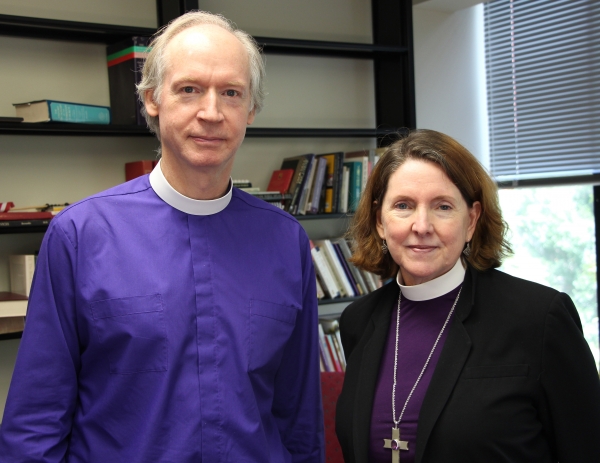Bishops of the Diocese of North Carolina Respond to Recent Events: "Things must change."

The last several days have had no shortage of stories and images to disturb and trouble us deeply. Yesterday, we saw yet another example, when peaceful protesters were disbanded with tear gas so that our president could have a photo op before a church - an Episcopal church. In the hours that followed, church leaders - including Presiding Bishop Michael Curry and Bishop Mariann Budde - publicly and clearly denounced these actions. We stand with them in these rebukes, and we would do so no matter the denomination of the worship space in the background or the party affiliation of the president. This is not a partisan matter. There is no way, as Christians or any other person of faith, to justify the infliction of pain and harm on others, let alone to do so in the interest of publicity.
We understand the anger these days are invoking; it is anger we share. Things must change. If we are to enact change, we must channel our anger into intentional, prayerful responses. And there are constructive ways in which every one of us can respond.
Acknowledge the role we, as Episcopalians, have played in creating the systems at work today. The Episcopal Church, from Anglicanism’s roots in the British Empire, has historically too often upheld white supremacy and served the interests of the powerful. We have made a commitment, as a Church, to diverge from that historical path and create a new path to follow. To do that we must start from a place of confession, repentance and desire, in the name of Jesus Christ, to atone for our sins and live into the future God wants for all people.
Speak out, as our Church leaders have done, and be intentional when you do so. Keep the focus where it needs to be, whether addressing systemic racism in action, abuses of power, the marginalization of populations, and the reality of power systems designed to protect some and threaten or hurt others, including the militarization of police forces, and disrespect for the constitutional right to assemble and protest peacefully. When those around you are talking about everything but those areas of focus, return the conversations to the actual problems and the factors that comprise them.
Read beyond the headlines, and learn all you can to know the whole story. Value first-person accounts of people on the ground, and know the roles actually played by participants. Examples in recent days include the grouping together of peaceful protestors and destructive instigators; they were not one and the same group, and understanding the roles each played makes all the difference in understanding the events of the last few days. Go deeper; do not stop seeking truth.
Work for change in a spirit of prayerful self-examination. Actions can manifest in any number of ways. Direct action, advocacy, education, learning how to be an ally - there is no one step that will “fix” the problems of systemic racism and injustice, so examine the paths that call to you. Above all, in any action you take, listen to and follow the lead of the communities directly impacted by systemic racism and marginalization. Know that being an ally often means stepping out of the spotlight and amplifying the voices of those who are too often silenced.
In everything you do, adhere to the call of our Christian values: that God created a world that God loves beyond measure, that Christ died to redeem the human family, that the Holy Spirit is active in the world’s renewal, that we are called to respect the dignity of every human being crafted in the image of God, and, in doing so, to seek justice and peace. Above all, remember nothing can separate us from God’s all-embracing love.
